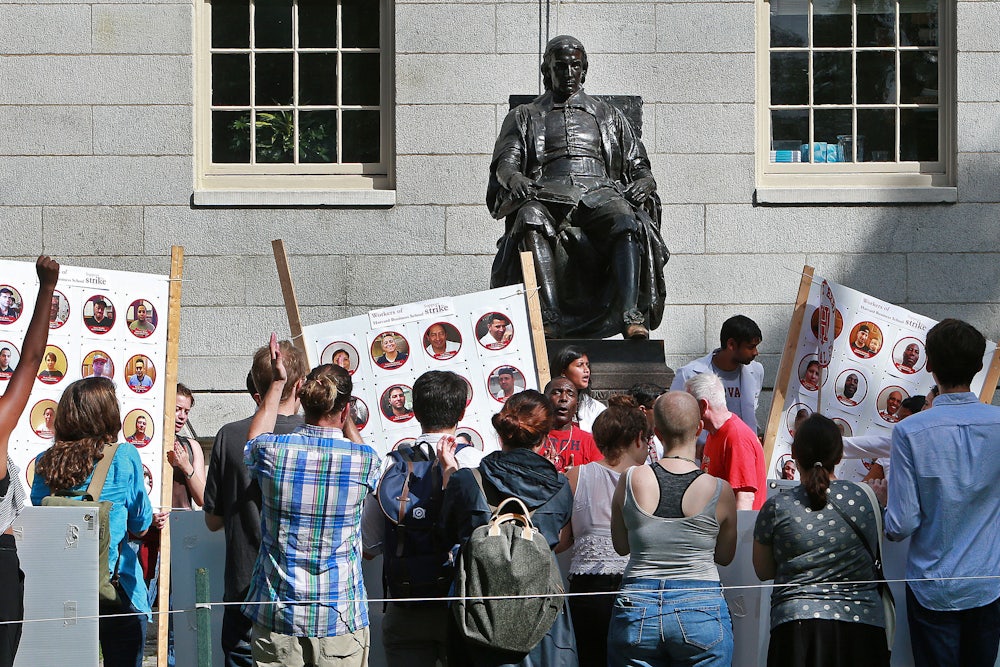Seven hundred and fifty workers at one of the nation’s most elite universities have been on strike for higher wages and a revision to their health care plans since October 5. It is the first strike at the school in 33 years. But three weeks in, Harvard’s administration shows no signs of budging. Today, one of the striking workers, Rosa Ines Rivera, penned an op-ed for The New York Times in which she wrote, “While I’ve earned no college credits here, I’ve had a lesson in hypocrisy.” As a worker in the public health school dining hall, Rivera noted the gap between the school’s purported mission to make health care a fundamental right for all and its proposal that its lowest paid workers take on a larger share of their health insurance costs.
That proposal would take nearly 10 percent of the workers’ annual incomes, according to an analysis by Harvard medical students, and isn’t affordable for most of the workers based on state guidelines. Ironically, Harvard faculty protested similar changes in health insurance premiums last year, when their deductible was raised from $0 to $250 a person. The school ultimately conceded to the faculty in that fight, offering them plans without any deductibles or coinsurance costs.
The dining hall workers are also demanding a raise, to $35,000 a year. Currently, according to Rivera, the average salary for a Harvard dining hall worker is $31,193 a year. This wasn’t enough to keep her and her two children in their own apartment in the Boston area. Harvard has countered that this salary is higher than the minimum wage and higher than what other cafeteria workers make in Boston. Yet the sticking point for many is that Harvard is the wealthiest school in the nation, with its $35 billion endowment, far above the next school’s by $10 billion.
As faculty, students, local politicians, and even celebrities join the picketers, it is clear that momentum is building to push the administration to re-negotiate with the striking workers and finalize a contract. But there has been no sign from the administration that any progress has been made. Instead, the school has hired temporary workers and offered boxed lunches, a solution that has resulted in students finding meat in bread pudding, uncooked chicken, and bugs in their food. How long will the nation’s wealthiest school hold out?
